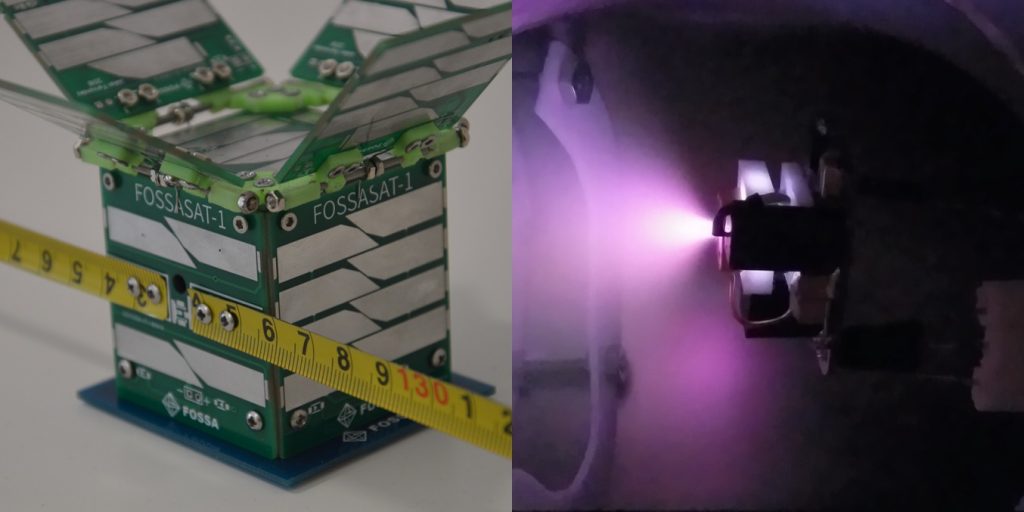This has got to be potentially the biggest and most exciting news yet to come out of Applied Ion Systems. I will officially be partnering with Fossa Systems, lead by Julian Fernandez, on a joint partnership collaboration project for an actual in-orbit PocketQube thruster demonstration using the AIS-gPPT3-1C Integrated Propulsion Module!
I simply cannot understate how incredibly huge of an opportunity this is. To have gone literally from nothing to a shot at a historic space mission for the PQ community with thrusters built at home using an open-source approach on a very limited budget in less than a year is utterly astounding. I would have never imagined coming this far, nor having gained such incredible support from the community when I first started my efforts.
Julian and Fossa Systems has done some incredible work for PocketQubes, and I highly recommend anyone interested in the topic or field to check out what they are doing. Like Applied Ion Systems, Fossa Systems is also an open-source effort working on democratizing access to space technology. Their PocketQube, the Fossasat-1, will create the world’s first open source IoT network. Julian has also achieved incredible and rapid advancement with his efforts in such a short time as well, and is truly pushing the boundaries of the field, at such an incredibly young age as well!
Why is this collaboration significant? This would be the first time that a fully open-source, independently developed and home-built electric propulsion system will have ever been fired in orbit. This will provide extraordinary performance and qualification data for the AIS-gPPT3-1C thruster, and really catapult these efforts to the next level. The thruster will undergo full vacuum, thermal cycling, vibration, and shock testing, while being integrated with an actual satellite for the very first time. This would also immensely boost the AIS-gPPT3-1C’s TRL status to a serious space-heritage platform if successful. Not only that, this could be the first time a PocketQube has ever successfully fired propulsion in orbit. The effort would also be a fully open-source, international satellite collaboration of advanced system integration, really the first of its kind. This would be a literally historic mission in the field!
There is still a lot of preparation to be done for this major mission, but I am eager to tackle this challenge. With the collaboration with Julian and Fossa Systems, I have been able to push the design and advance my thrusters to a level that I did not think I would actually achieve for a long time. I am excited to see where Fossa Systems goes from here and how far they can take the PocketQube field!

